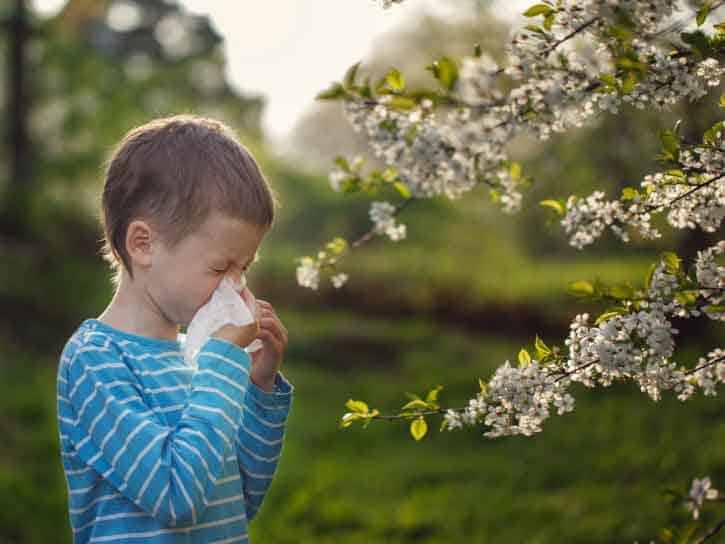All about Allergies
All about Allergies

What are allergies?
We’ve all heard of allergies, and many of us suffer from them, but what exactly are they? In this blog post we have a look at allergies, what they are, how you find out if you have any, and what sorts of things you can do to treat or manage your allergies.
When a person reacts to a substance that is generally harmless to most other people, they may have an allergy. The allergen, or the substance they are allergic to, can be any number of things such as dust, food, animals, plant matter or even medication, and can lead to all sorts of symptoms ranging from red eyes or a runny nose, through to a skin reactions, nausea or pain or even something life threatening such as anaphylaxis.
The nature of the exposure to the allergen can vary as well – such as breathing it in through the air (such as dust or pollen), having it come into contact with your skin (such as chemicals or detergents), or ingesting it (such as peanuts or shellfish).

What is the prevalence of allergies in Australia?
Anyone can develop allergies over the course of their lifetime, and similarly people can also “grow out” of allergies too. Allergies are very common, with around one in five Australians experiencing an allergy in their time, but allergies to particular allergens vary in commonality. For example, an allergy to pollen, animal hair, insect stings or peanuts is far more common than an allergy to water or sunlight (and yes, there are people who suffer from allergies to these vital things!)
Allergies are actually becoming more common too. It is estimated that over four million Australians are living with at least one allergy, and that this number has been on the rise across Western nations for many years. In fact, Australia is often called the “Allergy Capital of the World” with food allergies in around 10% of infants. Scientists think there could be a few things at play here – such as our urban, modern lifestyles, or perhaps our changing gut microbiome due to our modern diet. Studies also suggest that there can be a genetic link, and that the chance of you developing an allergy if both your parents suffered from it is as high as 60%.

What types of substances can you be allergic to?
There are hundreds, if not thousands of allergens, or substances that people can be allergic to. Some of the more common allergens include:
- Grass or pollen
- Dust
- Animal hair
- Food – such as nuts, shellfish, eggs, milk or fruit
- Insects
- Medicines
- Latex
- Mould
- Chemicals
There are also some less-common allergens, such as and allergy to:
- Water
- Sunlight
- Sperm
- …and even marshmallows!
Exposure to these allergens can cause a wide range of reactions such as allergic rhinitis (hay fever), in the case of grass or tree pollen; atopic dermatitis (eczema), in the case of allergies to dust, mould or some food; or anaphylaxis, such as in the case of a peanuts. As we mentioned above, reactions range from mild to extremely severe (and in some cases can sadly be deadly).

What are the signs that you’ve had an allergic reaction?
As we’ve mentioned above, it often depends on the type of allergen as to the type of reaction you might get. In addition to that, the duration and severity of reaction will vary too. Some of the common symptoms of an allergic reaction may include:
- Sneezing, itchy, runny or blocked nose
- Itchy, red or watering eyes
- Wheezing or coughing
- A rash
- Swelling, especially on the face
- Pain, nausea, vomiting or diarrhoea
- Dry, red or cracked skin.
More severe reactions, which may result in anaphylaxis could include:
- Swelling of the throat
- Difficulty breathing
- Dizziness
- Feeling confused
- Blue skin
- Loss of consciousness.
If you are experiencing any severe reactions such as those above, immediately call for an ambulance.

How do you test for allergies?
If you’re not sure if you have an allergy to something, there are tests that can be carried out which may be able to diagnose your allergy, and level of reaction to a particular allergen.
A common test for allergies is a skin test, whereby a small amount of the allergen (such as a piece of food or some pollen) is put on an area of skin, then left for a period of time to see if a reaction occurs. Other tests include intradermal tests, where a small amount of an allergen (such as penicillin) is injected into the body, or a patch test, where the allergen is put on a patch then applied to your body. These are particularly useful to test for allergic reactions to substances such as latex or metals.
As with all health concerns, the most important thing is to speak to a GP about your specific medical circumstances, so they can give you medical advice appropriate to your needs. He or she can then arrange any required testing, and discuss results of that testing with you. Once you know what you are allergic to, your GP will then be able to help you manage your allergy and understand what to do in the event of an allergic reaction.
If this article has raised any concerns for you around allergies experienced by yourself, or your children, make an appointment with a SwiftDoc GP to get the ball rolling. All SwiftDoc consultations are 100% online, so you can fit in appointments whenever and wherever you are.
This website does not provide medical advice. It is intended for informational purposes only. It is not a substitute for professional medical advice, diagnosis or treatment. Never ignore professional medical advice in seeking treatment. If you think you may have a medical emergency, immediately dial Triple 0 (000).
Sources:
Australasian Society of Clinical Immunology and Allergy, What is Allergy? Accessed June 2021.
Australian Government, Parliament of Australia, Overview of Allergies and Anaphylaxis in Australia, Accessed June 2021.
Beneden Health, World’s Most Rare and Uncommon Allergies. Accessed June 2021.
Healthline, 8 Uncommon Food Allergies. Accessed June 2021.
Mayo Clinic, Allergy Skin Tests. Accessed June 2021.
Medcast, Australia: Why are we the allergy capital of the world? Accessed June 2021.
NHS, Allergies – Symptoms. Accessed June 2021.
Queensland Health, Queensland Government, What are allergies and why do they develop? Accessed June 2021.